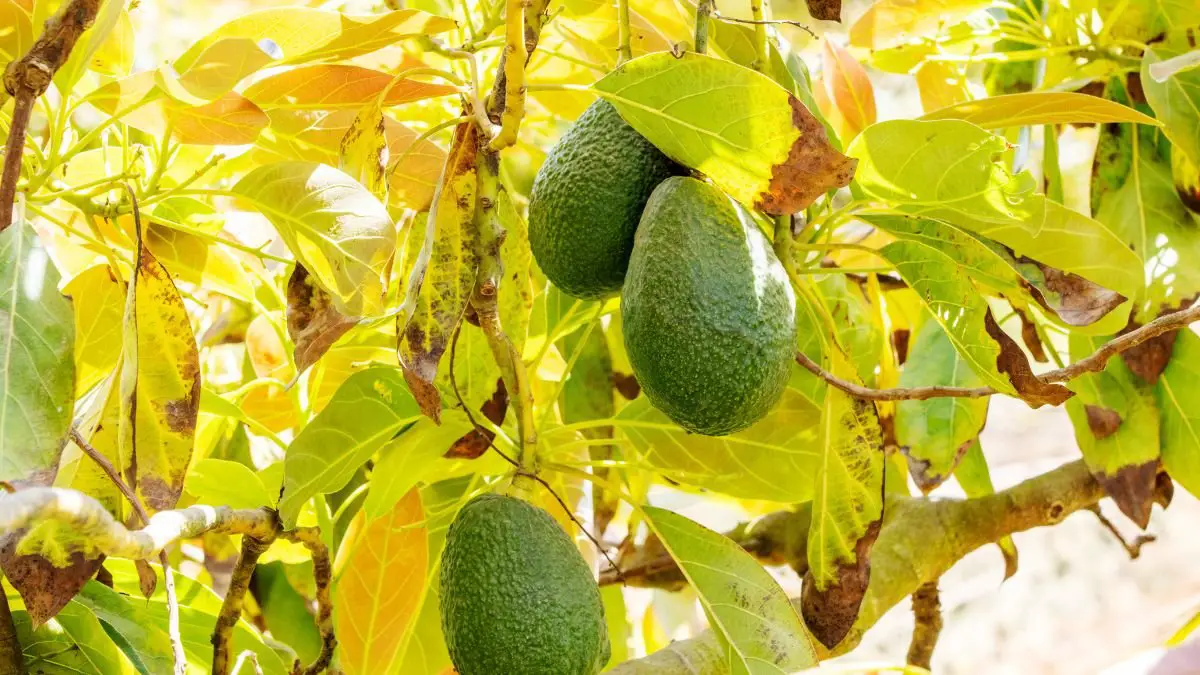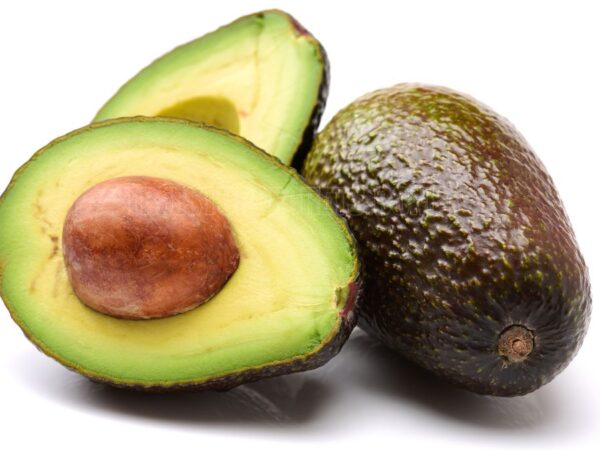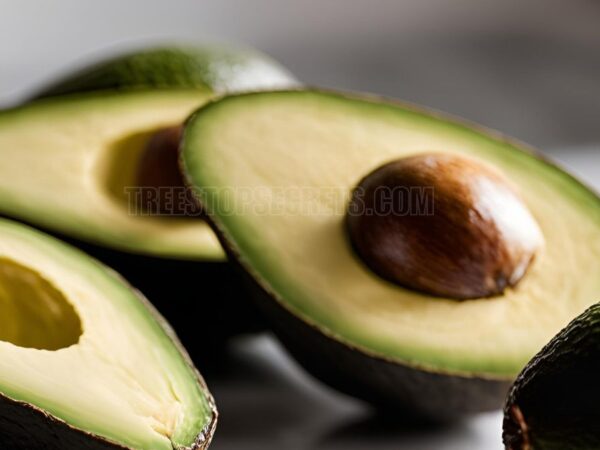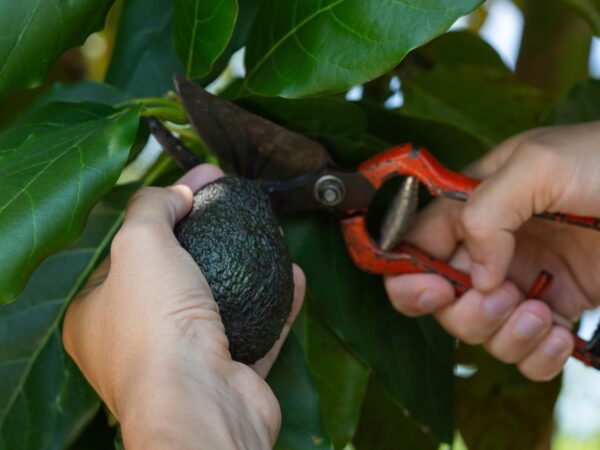Avocados are a popular fruit worldwide, but not every region is suited for growing these delicious trees. If you're wondering what zones avocados grow in, this article has you covered. Understanding the right USDA zones is essential for successful avocado cultivation. Whether you're a gardener or just curious, knowing the ideal climate is key to growing healthy, productive avocado trees. Let’s dive into the best zones where avocados thrive.
Avocados grow best in USDA hardiness zones 8 through 11, which offer the warm temperatures they need. These zones are typically found in states like California, Florida, and Texas, where winters are mild, and frosts are rare. If you live outside these zones, avocado trees may struggle to survive due to cold weather.
Are you ready to discover if your area is perfect for growing avocados? Stick with us as we break down everything you need to know about USDA zones and avocado trees. Whether you're a seasoned gardener or just getting started, this guide will help you understand the best environment for your avocados to thrive.
Growing Zones for Avocados
Getting avocados to thrive isn't rocket science, but it does require knowing the right conditions. Let’s break it down so you can cultivate those tasty green gems in your backyard.
Best Climate for Avocado Trees
Avocado trees love the warmth. For standard varieties, stick to zones 9 through 11. Zone 8 is possible, but you’ll need to give those trees some extra TLC during cold snaps (Avocados from Mexico). Temperatures between 60°F and 85°F are their sweet spot, especially if you’re planting young trees in spring.
| Growing Zone | Temperature Range | Notes |
|---|---|---|
| Zone 8 | Down to 20°F | Needs cold protection |
| Zone 9 | 20°F to 30°F | Perfect for growth |
| Zone 10 | 30°F to 40°F | Prime growing spot |
| Zone 11 | Above 40°F | Best condition overall |
Avocado Growing Tips
Sunlight is another biggie. Avocado trees need around 6 to 8 hours of direct sunlight daily. Watch out for young saplings—they can get sunburned, so shading nets can come in handy (Wikifarmer).
As for soil, avocados aren’t too fussy but prefer something loose and loamy or sandy, with a pH of 5 to 7. Avoid waterlogged or salty soils. If you’re near the coast, go for West Indian varieties since they deal better with salt (Wikifarmer).
Avocado trees can handle heights from sea level up to 2,400 meters (7,874 ft). They like gentle slopes (nothing too steep) and need protection from strong winds (Wikifarmer).
Nail the climate, sunshine, and soil, and you’ll be on your way to harvesting some amazing avocados!
Avocado Production Around the World
Who's Got the Most Avocados?
Let's talk about avocados. Mexico is the king of avocados, churning out over 28% of the world’s avocados in 2022. The U.S. loves those green goodies too, especially from California and Florida, but produces waaaay less.
Here's a list of the top avocado producers from 2022:
| Country | Production (Metric Tons) |
|---|---|
| Mexico | 3,215,000 |
| United States | 400,000 |
| Kenya | 290,000 |
| Colombia | 280,000 |
| Indonesia | 250,000 |
| Brazil | 220,000 |
| Chile | 220,000 |
These numbers show how much countries love growing avocados.
Beyond the Americas
Avocados aren't just an American thing. Countries in Africa and Asia are getting in on the action too. Kenya and Indonesia, for example, are becoming big-time players.
Growing avocados means you need warm, sorta sticky climates—think tropical and Mediterranean areas. Here's a quick look at where avocados are sprouting up around the globe:
| Region | Countries | Cool Stuff About It |
|---|---|---|
| Americas | Mexico, USA, Colombia | Rich soils and awesome climates |
| Africa | Kenya, South Africa | Growing popularity, perfect warm weather |
| Asia | Indonesia, Israel | New markets, just-right growing conditions |
| Mediterranean | Spain, Turkey | Great temps and soil, prime for top-quality avocados |
These regions show avocados are flexible, doing well in many different places, mostly in USDA zones 9 to 11. Though, with some extra efforts, they can grow in Zone 8 too.
So, wherever you're munching on your guac, chances are it came from one of these climate-friendly havens. Enjoy your toast!
When to Grow Avocados in Michoacán
If you’re looking to grow avocados in Michoacán, understanding when these tasty fruits bloom can make your life a whole lot easier. Michoacán's climate is prime for avocados, giving you multiple blooming times throughout the year.
When Do Avocados Bloom?
In Michoacán, the elevation of your orchard can dictate when your avocados will bloom. There are four main overlapping seasons:
| Season Name | What Happens Here |
|---|---|
| Loca (Crazy Fruit) | This season is hit or miss, but can surprise you with some uneven yields. |
| Aventajada | Everything's just right, making for a solid harvest. |
| Normal Season | Lasts from early fall to February, and you’ll get the most avocados. |
| Marzena | A late bloomer but don't count it out. |
The Normal Season is the powerhouse, lasting six months and bringing in the most avocados (Simplot Global Food).
Avocado Harvest: Boom or Bust?
The time of year can really change how many avocados you get from your trees. It takes a bit of patience; your trees need about 3-5 years to start giving you fruit. But once they start, they can keep going for up to 40 years (Simplot Global Food).
Here’s a snapshot of what to expect during different seasons:
| Season Name | Average Harvest per Tree (kg) |
|---|---|
| Loca Season | A mixed bag, not super reliable |
| Aventajada | Pretty solid, expect a good amount |
| Normal Season | Jackpot, high yields here |
| Marzena | A bit on the lower side |
Growing great avocados isn't just about timing. You need water and sunlight too. Avocado trees like getting 800–1700 mm of rain each year. If you hit a dry spell, you'll need to give them a drink with some irrigation (Wikifarmer).
Sunlight’s a big deal as well. Most avocado varieties need about 6-8 hours of sun each day. While older trees can handle a lot of sun, younger ones might need some shade to protect their leaves (Wikifarmer).
Stick to these tips and you'll be well on your way to growing a bounty of avocados in Michoacán!
Growing Avocado Trees: A Practical Guide
Getting avocados to sprout and thrive isn’t rocket science, but it does take some know-how. Let’s break down what you need to get that tasty green fruit growing right in your backyard. We’ll chat about the soil they love and how to plant these trees like a pro.
Your Avocado Tree's Dream Dirt
Avocados aren’t too fussy about their soil as long as it’s loose and airy, like loamy or sandy mixes. They aren’t big fans of swampy ground or salty sand pits. The pH of the soil should be between 5 and 7. If you live near the coast, go for the West Indian varieties since they can handle the saltiness better (Wikifarmer).
Here's the dirt on what avocados like:
| Soil Type | pH Level | Drainage Requirement |
|---|---|---|
| Loose | 5 - 7 | Well-draining |
| Loamy | 5 - 7 | Well-draining |
| Sandy | 5 - 7 | Well-draining |
Plant Your Avocado Trees Like a Boss
You can grow these green beauties pretty much anywhere from sea level to mountain high (like 7,874 feet!). But keep ‘em out of the crazy wind and on slopes that aren’t too steep—stick to a 15% incline or less (Wikifarmer).
Here’s how to make sure your avocado tree digs its new home:
-
Pick a Sunny Spot: Make sure the tree gets 6-8 hours of sunshine every day. Avocados love light and can’t do without it (Avocados from Mexico).
-
Prep the Dirt: Test the soil's pH and tweak it to get it between 5 and 7 if needed.
-
Dig a Hole: Dig a hole that’s twice the width of the tree’s root ball. Don’t go too deep, just enough so roots are comfy, but not drowning.
-
Root Support: Place the tree in the hole, spread the roots, and fill it in gently. Water it well to get rid of air pockets—plants hate those.
-
Mulch It: Slap on some mulch around the base to keep the soil moist and cool.
Follow these steps, and your avocados will be happy campers, ready to grow tall and bear fruit. Happy planting!
Making Your Avocado Trees Happy
Ready to turn your backyard into an avocado paradise? There are two biggies you need to nail: how you water those bad boys and making sure they get enough sun and warmth. Get these right, and you'll have guacamole for days.
Watering: Keep It Just Right
Avocado trees love water, but they don’t want to swim, capisce? When I first plant my avocado trees, I give them a good soak two to three times a week. Once they’ve got their roots all comfy and settled by the end of the first year, I dial it back to once a week. Mature trees can be thirsty – about 20 gallons of water a day during the growing season!
Don’t just water blindly, though. Stick your fingers into the soil. If it feels like a damp sponge, you’re golden. If it's soggy, hold off. This little test helps dodge root rot, which is a real buzzkill for avocado trees.
| Tree Age | Watering Frequency | Water Need |
|---|---|---|
| First Year | 2-3 times a week | Keep it damp |
| After First Year | Once a week | ~20 gallons/day |
Sun and Temperature: Find the Sweet Spot
Sun is the secret sauce. Avocado trees want sunlight like we want that last slice of pizza: a lot of it. They thrive with 6-8 hours of direct sunlight daily. They’ll tolerate a smidge of shade, but if you want them to be happy and productive, keep them basking in the sun.
Temperature-wise, these trees are pretty flexible but do have their limits. They can take a beating from -4°C to a scorching 40°C, but there’s a sweet spot where they really shine. Most types, like the delicious Hass, are happiest between 16°C and 21°C (60°F to 70°F).
Keep an eye on these key temperatures:
| Temperature | Impact |
|---|---|
| Above 40°C (104°F) | Could stress them out |
| Below -2°C (28°F) | Might mess up their mojo |
| Below 10°C (50°F) | Could pause flowering |
Nail It and Enjoy the Fruits of Your Labor
So, the magic formula? Keep their roots happy with the right amount of water, let them soak up plenty of sun, and watch those temperatures. Stick to these basics, and your avocado trees will be the envy of the neighborhood.
Got your watering can and sunscreen ready? It’s time to grow some avocado goodness!
Tips for Successful Avocado Farming
Growing Your Avocado Trees
Avocado trees don't start paying off right away. It usually takes about three to five years before they start producing fruit, especially in places like Michoacán, Mexico. But once they do, you'll be reaping the rewards for up to 40 years. It's a long wait, but seeing your trees finally bear fruit makes it worth it.
When mature, these trees can produce between 200 to 300 avocados each, especially around ages 5 to 7. But don’t get too comfy; they have what’s called "alternate bearing." One year you’re swimming in avocados, and the next, not so much. This cycle is natural, with the tree setting about 1 fruit out of every 10,000 flowers. To keep those numbers up, good cross-pollination is key. Just don’t go overboard with the nitrogen fertilizer; too much can cause fruit drop and mess up your yield.
| Tree Age (Years) | Fruit Production (Fruits) |
|---|---|
| 5 - 7 | 200 - 300 |
| 3 - 5 | None to Minimal |
Keep It Green and Clean
Avocados are in high demand, but that’s led to some problems like deforestation and monoculture. So, it’s crucial to farm wisely for the long haul. I’ve discovered sustainable farming methods that work, and I’m sticking with them.
Using precision farming technology helps manage resources efficiently. For example, well-planned irrigation systems deliver the right amount of water at the right time. Avocados hate a water shortage; it lowers the oil content and ruins the taste and texture. Check out the folks at Simplot Global Food for more on seasonality and quality.
Biodiversity is also a big deal. I’ve found that intercropping—growing different plants together—makes for a healthier farm. And don’t go crazy with the chemical fertilizers; organic compost is better for the soil and, ultimately, for your trees.
Keeping the Farm Future-Proof
These tips have suited me well. I've watched my trees grow, and adopting these methods has made for a sustainable operation. So if you’re looking to get into avocado farming, remember to think long-term and keep things sustainable. Here’s to a bountiful harvest!
Final Thoughts: What Zones Do Avocados Grow In?
Knowing the right USDA zone for avocado trees is crucial to successful cultivation. Avocados thrive in warm climates, typically in zones 9–11. Growing them outside these zones can be challenging, but with the right care, even colder areas may yield results. If you're planning to plant avocado trees, make sure your climate matches their needs for the best chances of a healthy, fruitful harvest.
FAQs about What Zones Do Avocados Grow In
Q: What are the best USDA zones for growing avocados?
A: The best USDA zones for growing avocados are zones 9 through 11. These areas offer the warm temperatures and mild winters that avocado trees need to thrive.
Q: Can I grow avocados in zone 8?
A: While zone 8 is cooler than recommended for avocados, it may still be possible with careful protection from frost and cold winters. Greenhouses or bringing potted avocado trees indoors can help.
Q: Are avocados frost-sensitive?
A: Yes, avocado trees are highly frost-sensitive. Frost can damage their leaves, flowers, and fruit. They grow best in climates with mild winters where frost is rare or non-existent.
Q: Which states in the U.S. are best for growing avocados?
A: States like California, Florida, Texas, and parts of Hawaii are ideal for growing avocados, as they fall within USDA zones 9–11 with the warm, frost-free climate avocados require.
Q: How do I protect avocado trees from cold weather?
A: To protect avocado trees from cold weather, cover them with blankets during cold nights, use frost cloths, and provide extra heat using outdoor heaters. Potted trees can be moved indoors for extra protection.
Image Source: Paid image from CANVA





